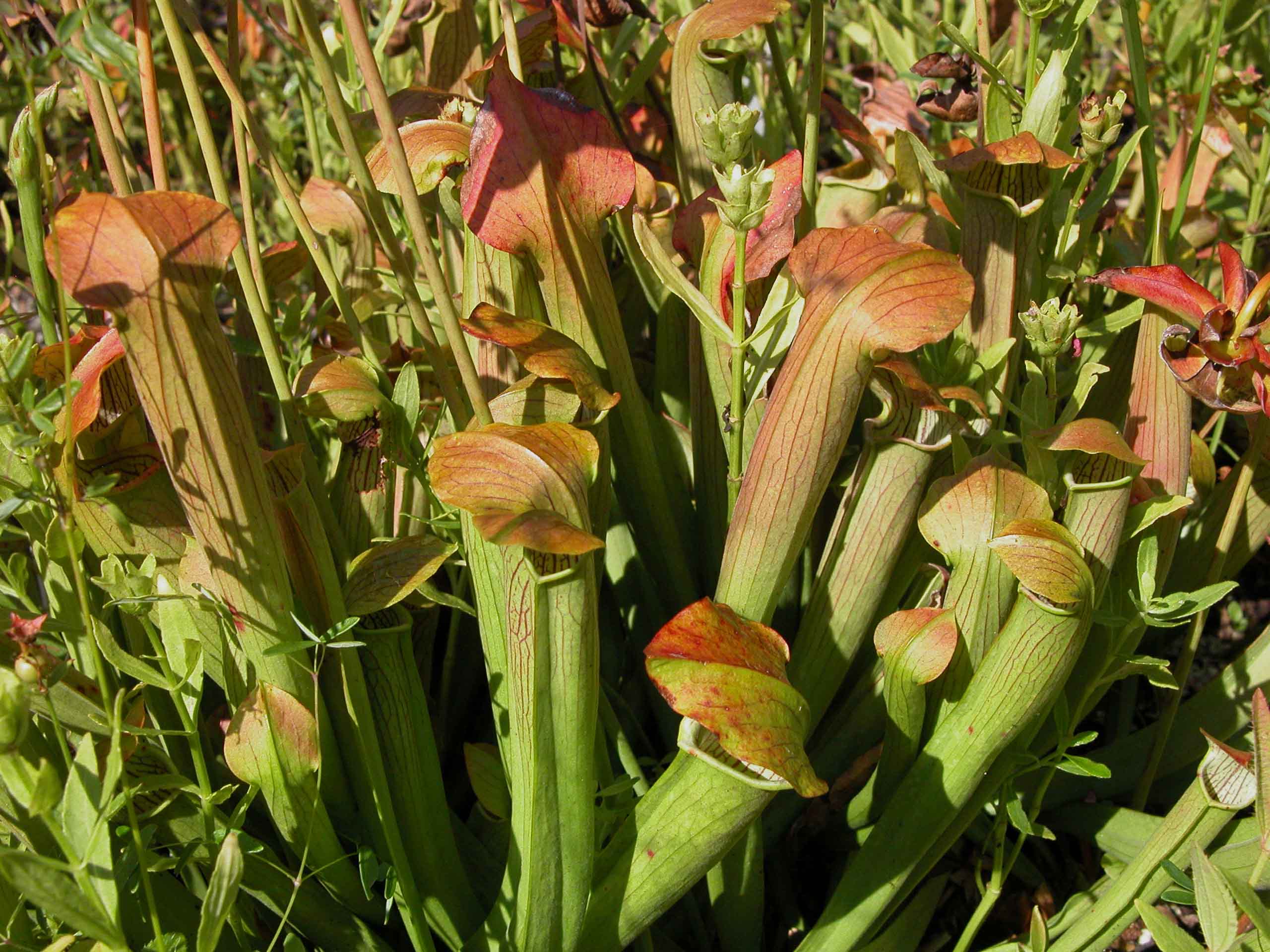National Collection Spotlight: Mountain Sweet Pitcherplant

Mountain Sweet Pitcherplant (Sarracenia rubra ssp. jonesii) is a critically imperiled and federally endangered carnivorous plant species endemic to the Blue Ridge Mountains of North and South Carolina. Nestled amidst the sphagnum moss in mountain bogs and along streams, this species is bright green with maroon veins and features clever pitchers to trap its prey — mainly insects and small arthropods that serve to supplement their nutrient-deficient habitat. With waxy, slippery pitchers, their prey cannot escape once captured. The plant produces a nectar that paralyzes its prey, as well as digestive fluids that decompose it, allowing the plant to absorb its nutrients.
This unique plant faces many threats, including changes in hydrology that destroy their bog habitats, as well as fire suppression, fertilizer run-off, and illegal poaching and collecting. The conversion of forested land to use for agriculture or residential and commercial land development leads to changes that impact local streams, thereby drying out these biodiverse bogs that support countless species. Of the 16 historical populations known of this southern Appalachian endemic, only 10 survive today, with two populations on public land — and only one is known to be well protected.
Mountain Sweet Pitcherplant is secured in the National Collection at North Carolina Botanic Gardens and Atlanta Botanical Garden. Conservation initiatives include on-site management, seed collection, and research into propagation and outplanting.
Learn more about conservation actions taken for Mountain Sweet Pitcherplant on its National Collection Plant Profile!